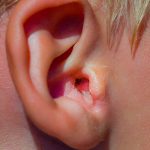Medicines for osteoarthritis
What is osteoarthritis?
Osteoarthritis is the most common form of arthritis. It happens when the cartilage between the joints wears down and becomes thin. Cartilage is the protective cushioning that stops the bones rubbing on each other. If the cartilage wears down enough, the bones rub on each other. This will worsen your pain and limit movement. It can also cause inflammation and deterioration of the joint as it tries to ‘fix’ itself.
How is osteoarthritis treated?
There are no medicines that can cure osteoarthritis, although there are studies trying to find an effective treatment. In the meantime, osteoarthritis medicines focus on relieving pain and inflammation.
Your doctor will explore with you the best medicine and non-medicine treatment options to minimise your osteoarthritis pain and maximise your quality of life.
Treatment usually depends on the joints affected and the how bad the pain is.
It can include:
- losing weight, if you are living with obesity or overweight
- regular exercise
- application of hot or cold packs
- physiotherapy
- aids and devices
- over-the-counter (OTC) and prescription medicines
- surgery
What types of medicines are used for osteoarthritis?
Medicines may be used as one part of a bigger strategy to maximise your quality of life. The main goal of osteoarthritis treatment is to find ways for you to achieve your goals, rather than to cure the pain completely.
Different types of medicine can ease osteoarthritic pain. Some are tablets and capsules that you swallow, some you can rub on your skin and others are injected into the joints.
The most common ones are:
- analgesics (pain relieving medicines), such as paracetamol
- non-steroidal anti-inflammatory drugs(NSAIDs), such as diclofenac and ibuprofen tablets
- topical therapies (that you put on your skin), including gels and creams, such as topical NSAIDs and capsaicin)
Some people also have injections of corticosteroid (a type of steroid) into their joints to reduce inflammation. These don’t last long-term and can damage the joint if you have them too often.
If these medicines don’t work, your doctor may consider other medicines including antidepressants such as duloxetine or an opioid medicine. However, opioid medicines are not usually recommended for long-term use, as they can have with side effects and cause addiction.
What are the side effects or risks associated with medicines used for osteoarthritis?
All medicines can have side effects. Sometimes they are serious, but most of the time they are not. Ask your doctor or pharmacist about potential side effects of any medicine you have been prescribed.
The main concern with oral NSAIDs is a risk of gastrointestinal side effects, such as stomach ulcers and bleeding. If you are taking an NSAID, you should try to take it for the shortest time possible. Your doctor may also suggest you take a proton pump inhibitor to reduce the chance of gastrointestinal side effects.
Paracetamol may not work very well for osteoarthritis pain. It can also have harmful side effects if you take it long-term, especially if you are also taking an NSAID.
When should I see my doctor?
See your doctor if you have symptoms of osteoarthritis that affect your daily life. Your doctor can discuss the best treatment options with you.
Before taking any medicines, you may wish to ask your doctor or pharmacist:
- what are the side effects of your osteoarthritis medicines
- what are the benefits
- what to do if you miss a dose
- what to do if you experience side effects
Talk to your doctor as soon as possible if you feel unwell when taking your medicines. Do not stop or change your medicines without talking to your doctor.
What are complementary therapies for osteoarthritis?
Some people find supplements such as glucosamine or therapies such as acupuncture helpful. However, there is no high-quality evidence to show that they are effective in treating or relieving pain from osteoarthritis. If you want to try complementary medicines for your osteoarthritis, check with your doctor or pharmacist that they are suitable for you.
Looking for more medicine information?
healthdirect’s medicines section allows you to search for medicines by brand name or active ingredient. It provides useful information about medicines such as their use, whether they are available on the Pharmaceutical Benefits Scheme and product recalls.


